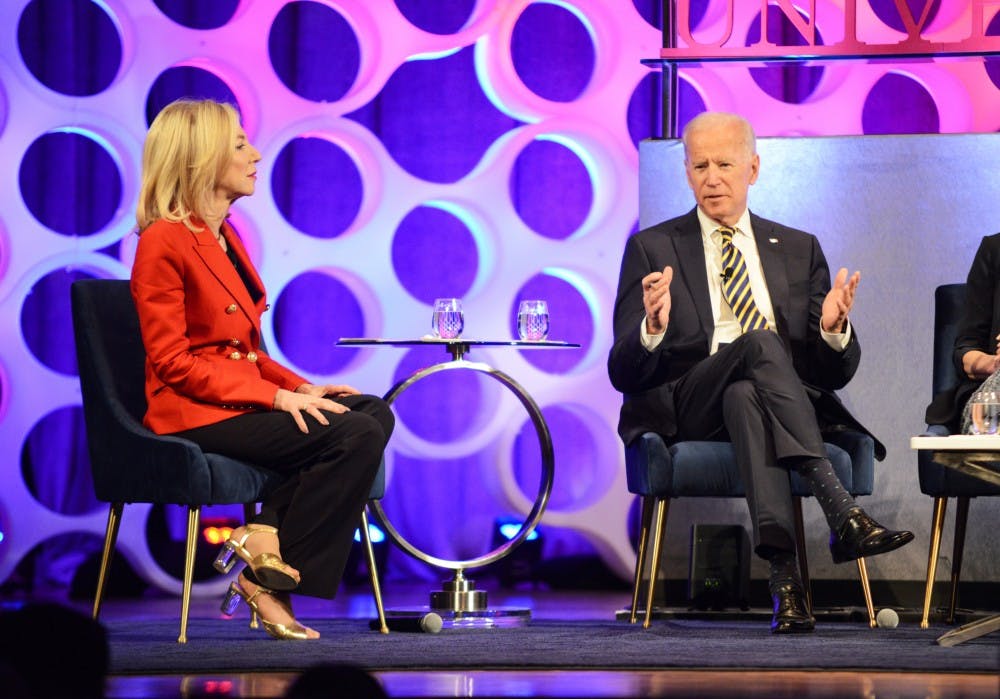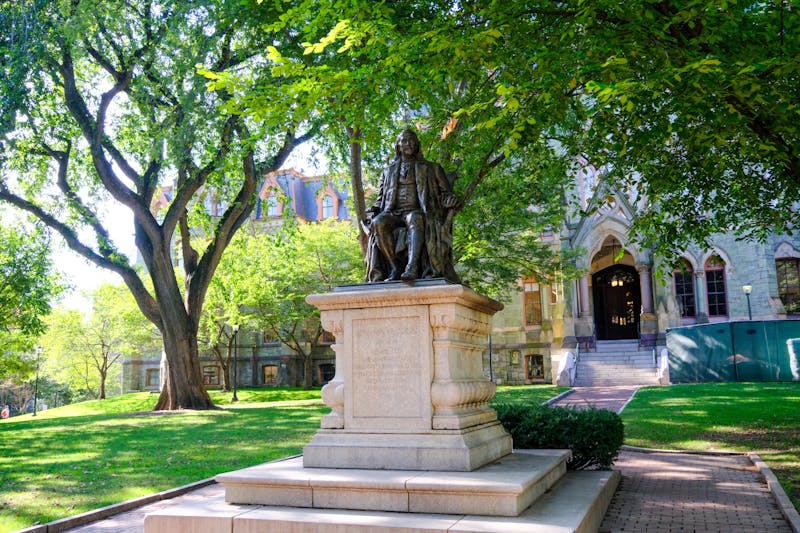
Penn Presidential Professor of Practice Joe Biden addressed a sold-out audience and held a conversation on the opioid crisis with Penn President Amy Gutmann at Irvine Auditorium Thursday afternoon.
The former vice president was joined by former Florida Governor Jeb Bush, Mayor of Philadelphia Jim Kenney, Penn professor of emergency medicine Jeanmarie Perrone, and Harvard professor of psychobiology Bertha Madras.
The experts stressed the severity of the nationwide opioid crisis, clarified the benefits of decriminalizing addiction, and emphasized the need to change the country's culture to reduce dependence on such drugs.
Here are the top takeaways from the event.
Biden called on the government to change its view of addiction
Drawing on his decades of experience as a lawmaker, Biden said the government has failed to effectively deal with the opioid crisis.
Many politicians believe addiction is a matter of willpower, leading to a lack of funding for opioid prevention policies, Biden added.
"It's a disease — it's a disease of the brain," Biden said refuting what he said was a widespread misconception.
Madras agreed, adding that addiction is a biobehavioral disease that leads to compulsive use of drugs. Madras said many people cannot "climb out of that uncontrollable urge," despite the belief that some people grow out of addiction as they get older.
The opioid crisis is a national emergency
Gutmann introduced the event by labeling the opioid epidemic as the "deadliest drug crisis in American history," declaring that the epidemic "cuts across all communities and affects every corner of society."
Biden decried the over-prescription of opioids by American doctors and the "greed" of drug companies. The former VP noted that the death tally from the current opioid crisis was larger than the American death toll from the Vietnam War.
"What we're seeing in an emergency room now is [people] picking up the pieces of the 220 million prescriptions," said Perrone, who is also a Penn emergency room physician.
Philadelphia is playing a key role in combatting the crisis
In the face of Philadelphia's opioid crisis, Kenney said the City learned to decriminalize addiction. To combat the epidemic, the mayor said Philadelphia launched the Resilience Project, which includes treatment facilities.
"We don't want to lock people up, it makes things that much worse," Kenney said. "I think we have to do a whole lot more of that diversion in order to have some impact."
Kenney also cited the City's safe injection sites as successful measures to combat the crisis, where individuals can obtain opioids in controlled settings with social workers, showers, and face-to-face interaction.
Bush and Gutmann agree that the culture surrounding opioids needs to change
When Gutmann asked what each panelist wished Americans would understand about the crisis, Bush said he wanted "to change our culture so that we don't default to taking a pill to solve our problems."
"It's not cool to take drugs in general," Bush said, mentioning the intersection of mental illness and addiction in terms of his own daughter's struggles.
During his time as governor of Florida, Bush established drug courts and drug treatment facilities across the state, a move he described as a sweeping success.
"It takes institutions: churches, synagogues, and mosques," Gutmann said. "This is not something anyone can struggle with alone. You really need a community of support."
Biden agreed and said he wished Americans understood how addictive opioids can be.
"A little pain's not bad," Biden said.
The Daily Pennsylvanian is an independent, student-run newspaper. Please consider making a donation to support the coverage that shapes the University. Your generosity ensures a future of strong journalism at Penn.
Donate






